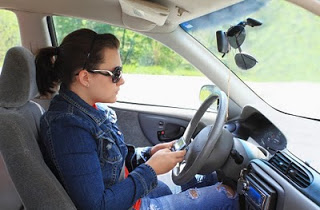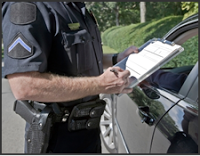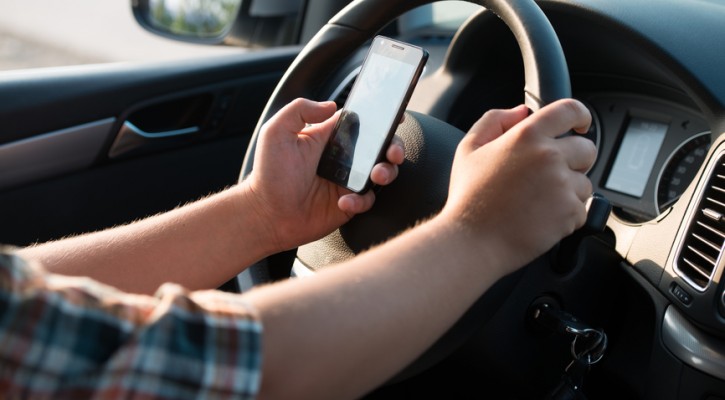Category Archive: Safe Driving

Coming Soon, Texting your Way to a Fine
July 24, 2007
Quite a few states have jumped on the bandwagon about banning driving while talking on the cell phone. However, the growing trend of texting while driving has caused lawmakers, especially in New York to go back to the drawing board to include texting in that ban. And after the recent fatal accident where five teens were killed, with texting as a likely culprit, the heat is really on to get the new ruling passed.
The question remains, “Will a ban on texting really help prevent accidents?” No one really knows for sure and as a result, the proposed law change is getting some mixed reviews. Some people feel that the wireless industry is not doing enough to advertise the dangers of cell phone use while driving. However, others feel that it all boils down to practicing basic defensive driving skills.
People hear that talking on the cell phone and texting has caused accidents and killed people, yet they do not hinder their own actions. Why is that? It’s just like smoking. You know that it is hazardous to your health, yet you do it anyway. The same principle applies with cell phones. Are our lives so busy and competitive that we cannot miss a single moment with our cell phones? How did we ever get along twenty or thirty years ago?
Another part of the problem is how to keep the teenagers from texting while driving. Many of them admit to doing it and know it is dangerous and still do it anyway. At some point, we have to accept responsibility for ourselves. In the case of teenagers who are still feeling their way around the whole driving thing, the parents are going to have to be the guiding force in appropriate driving behavior in teens. Of course, that means that they will have to clean up their own acts so that they can lead by example.
It is because people know better yet do it anyway that is precipitating this texting inclusion in the existing cell phone law. Sometimes, we have to help those who refuse to help themselves. And if it takes imposing fines to get the point across, so be it. The problem is that no one truly knows how much of an impact this law will make on saving lives. We’ll just have to wait and see.
Engaging Teens Does Work for Driving Safety
July 18, 2007
Allstate Insurance Company recently awarded fifty $1,000 awards to various organizations that promote safe driving for teens. National Youth Traffic Safety Month was declared for the first time this past May. Allstate Insurance teamed up with NOYS (National Organizations for Youth Safety) and issued a challenge to these different youth organizations to come up with campaigns that could help decrease the number of fatalities and injuries due to teenage driving.
You might say that many teens all over the country took to the challenge and managed some creative, educational ways to promote safe driving for teenagers. How many lives has this effort saved so far? No one knows the answer. However, this $50,000 incentive has challenged teenagers to come up with solutions and essentially has put them in the driver’s seat. What better way than to engage teens at the very thing that is the problem?
By empowering teens to come up with solutions on how to save the lives of other young drivers, you are actually opening their eyes to the fact that maybe their own actions and habits are not safe either. This is actually a pretty ingenious move on behalf of Allstate Insurance and the National Organizations for Youth Safety. Everyone knows that teens sometimes just pretend to hear adults and lectures often go in one ear and out the other. However, by putting them in charge of coming up with their own solutions to this growing teenage driving problem, these teens are getting quite an education on their own and often will fix their own habits without prompting.
This contest likely brought many teenagers face to face with their own mortality and they probably did not like it. After all, most teens feel that they are invincible and have all the time in the world. Well, when preparing for this contest, these teens likely learned about the appalling statistics on the death rate of teenage drivers and how many of these accidents could have been prevented. That kind of eye-opener tends to make most people, especially impressionable teens, sit up and take notice.
An adult relaying this information will likely be met with eye-rolling and “yeah, whatever’s.” However, when you empower your teen to come up with this information on their own, well, they appreciate it all the more. Allstate Insurance and NOYS deserve some kudos for protecting new teenage drivers on the road. Now, let’s hope that your teens sit up and take notice too.

Project Note Home in Wyoming Should Keep Teens on the Straight and Narrow
June 7, 2007
The state of Wyoming has implemented a great new plan called “Project Note Home.” It seems that new teenage drivers tend to not share the fact that they receive traffic tickets with their parents. Shocking, isn’t it? In fact, parents are pretty much clueless until the next insurance bill comes along. However, with “Project Note Home,” any traffic infraction gets communicated to the parents.
Keeping parents in the loop about their teen’s driving record is a smart move for the state. Too often, teens have found out ways to pay for their tickets without their parents finding out about it. These teens are not being held accountable for their actions. What are a few bucks in fines compared to having their driving privileges suspended? Well, with this new program, copies of the traffic violation are being sent home to the parents. Teenagers will now have no way to hide their driving violations.
No longer will parents be shocked to find their teen’s auto insurance bill going up several hundred dollars. Now, they will know exactly why – their teenagers are not practicing safe driving practices. You can bet that a lot more teenagers will experience suspended driving privileges as a result of “Project Note Home.”
There is a side benefit to this new program as well. It could very well save the lives of many teenager drivers. It’s a proven fact that the biggest death toll in car accidents every year fall within the fifteen to twenty year old range. Teenagers are inexperienced. They have not come across every driving situation experience yet. With that inexperience come potential problems.
By being held accountable for every infraction while behind the wheel of a car, teenagers will soon learn to shape up their habits. Speeding is one of the biggest violations on the road along with not wearing a seat belt. Both of these infractions can kill. By alerting parents to the fact that their teenagers are not engaging in safe driving behaviors, this will open a dialogue between the parent and the teen. They will be forced to talk about the situation and perhaps, a lesson or two will be learned.

Florida Police Officers Worry About Distraction and Safety
April 27, 2007
As the parent of a teenage driver, Police Chief Roger Boatner, of Lakeland, Florida worries when his daughter is behind the wheel. However, his worries are not with her own driving skills or with the locations she visits. He worries most about the many drivers he sees doing nearly everything but driving as they cruise down the street.
Those who spend even a few seconds changing a CD, answering the cell phone, or taking a bite of a sandwich can cause a serious accident. Other troopers agree with the seriousness of the problem of distracted driving. Larry Coggins of the Florida State Highway Patrol claims that in every crash there can be some type of driver error found.
Many studies have been done on the effects of cell phones and other distractions while driving. While exact numbers have varied, the basic results have been the same.
- Virginia Tech’s Transportation Institute found that drivers who talk on cell phones are 4 times more likely to be involved in a serious crash.
- The National Highway Traffic Administration carried out a study, which found that more than 75% of crashes and 66% of near misses occurred when drivers were engaged in conversations on cell phones.
- The University of Utah carried out an experiment that resulted in the conclusion that drivers talking on cell phone were just as impaired as an intoxicated driver.
Results such as these have caused a few states to pass laws prohibiting all drivers from talking on cell phones while behind the wheel. Even more states have implemented similar laws, but focused them only on teenage drivers. Unfortunately, Florida is yet to have created one of these laws.
The Sheriff’s Office in Polk County, Florida has decided that these messages are so important that they have placed them on their phone system as a hold message. Additionally, they remind drivers of the importance of wearing their seat belts.
The Polk Sheriff’s Office handled 50 traffic deaths within their jurisdiction. Of these, officers believe that at least 14 lives would have been saved if the victims had been wearing a seat belt. To prevent more of these accidents from claiming the lives of young people, Florida has enacted a law allowing officers to pull cars over if passengers under the age of 18 years old are seen unrestrained.

Winnebago School Board Says Driver’s Ed Is A Privilege, Not A Right
April 5, 2007
Drawing on a tactic long used by parents to influence their teenager’s actions, schools are now dangling the car keys in front of students as a motivator. The Winnebago school board in Illinois has decided to place a bit of extra responsibility on its sophomore students, letting their grades decide if they are eligible to take a school sponsored driver education program.
Following in the footsteps of other regulations within the district applying to sports and other activities, students must now maintain a 2.0 grade point average in order to participate in the school’s driver education program. Placement in these classes is highly sought after, as they cost half of what instruction at a private driver’s education course would.
This restriction adds to the ever-growing list of laws and regulations regarding teenage drivers, frustrating students a bit. However, the additional monitoring and responsibility will only lower the risks related to the youngest of drivers.
Some of the other laws, besides the new grade requirements, include:
- Cell phones may not be used while driving.
- Drivers may not have more than one unrelated passenger under the age of 20 in their vehicle within the first 6 months of being licensed.
- Teen drivers must be off the roads before 11 pm on weekdays and midnight on weekends.
All of these regulations have been put in place to reduce the accident rate among teenage drivers. Insurance Institute for Highway Safety studies show that the accident rate per mile for drivers under twenty years old is four times that of an experienced driver. The youngest of these drivers, at sixteen years old, are involved in twice the number of accidents as the eighteen and nineteen year old drivers.
The Winnebago school district has already passed this plan within their own district, however it is not finalized for next fall as of yet. Since the Illinois State Board of Education rules are more relaxed, they must apply for a waiver to tougher their own school’s restrictions. Once this waiver is approved, the plan will start in the school year immediately following.
Create your own customized Teen Driving Contract online based on the core principles of the Driver Education Handbook for Parents and Florida’s Graduated Licensing laws.
